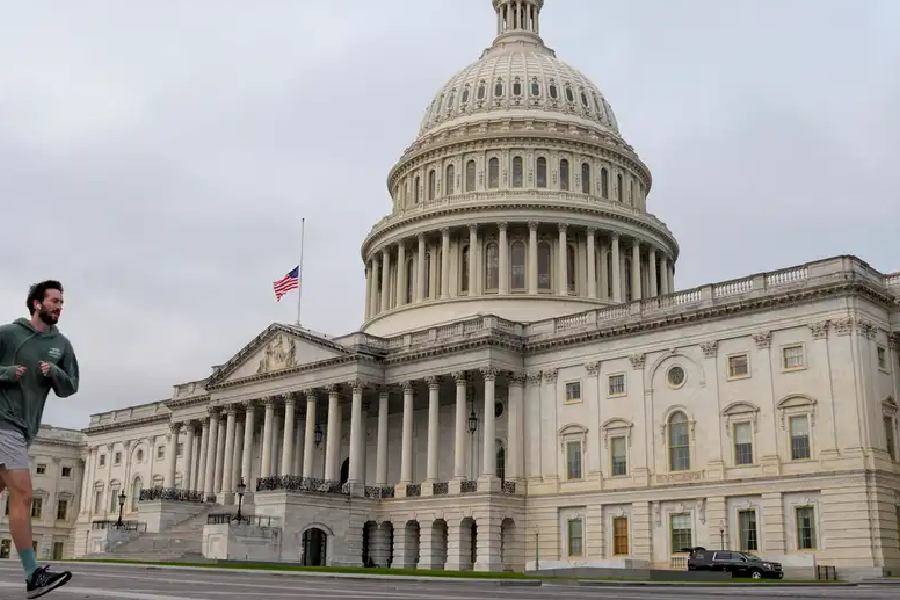United States Congressional lawmakers on Saturday passed a last-gasp budget measure to avoid a shutdown of the federal government within hours of a midnight deadline.
Republicans had so far failed to agree on a bill to continue US government spending, amid reluctance by some conservatives to send more aid to Ukraine.
After it was passed in the House of Representatives, the Democrat-majority Senate voted 88 to 9 in favor of the bill. The nine senators who voted against the bill were all Republicans. The funding bill was then sent to President Joe Biden who signed it into law.
The measure will extend government funding by 45 days.
Biden says bill 'good news'
Biden said the bill was "good news for the American people."
"But I want to be clear: we should have never been in this position in the first place," he stressed. "Just a few months ago, Speaker McCarthy and I reached a budget agreement to avoid precisely this type of manufactured crisis.
"For weeks, extreme House Republicans tried to walk away from that deal by demanding drastic cuts that would have been devastating for millions of Americans. They failed," he said.
He also said the United States "cannot under any circumstances allow American support for Ukraine to be interrupted."
He said that he expected Republican Kevin McCarthy, the speaker of the House of Representatives, to "keep his commitment to the people of Ukraine and secure passage of the support needed to help Ukraine at this critical moment."
US media reported that a vote on a separate bill on $24 billion (€22.67 billion) in military assistance to Ukraine could be held next week.
What is McCarthy's stopgap measure?
McCarthy pushed a 45-day funding bill through the House with support from Democratic lawmakers as 90 members of his own party voted against the bill.
The measure would fund the US government at current 2023 levels until November 17.
The bill does not include financial support to Ukraine, a White House priority opposed by a growing number of GOP lawmakers, but would increase federal disaster assistance by $16 billion, meeting President Joe Biden's full request.
The quick pivot came after the collapse Friday of McCarthy's earlier plan to pass a Republican-only bill with steep spending cuts of up to 30% to most government agencies.
The White House and Democrats rejected that plan as too extreme.
What caused the delay?
The deadlock in the US Congress was due to a small group of hard-line Republicans pushing back against temporary funding proposals put forth by their own party that would at least keep the lights on.
Had both houses of Congress not passed a deal to fund government operations by a midnight Saturday (0400 UTC Sunday) deadline, the United States would have faced a disruptive federal shutdown.
The closure would have included everything from troops to border control agents to office workers, scientists and others.
In the event of a shutdown, federal workers would face furloughs, more than 2 million active-duty and reserve military troops would work without pay and welfare programs and services that Americans rely on from coast to coast would begin to face disruptions.
McCarthy's job on the line
The pivot tests McCarthy's narrow 221-212 House majority and could even lead to a challenge to his position as speaker.
The maneuver required Democratic votes, a fact that angered some Republican party hardliners who had wanted to pass a bill without their support.
The latest standoff comes just months after Congress brought the federal government to the brink of defaulting on its $31.4 trillion debt.
The drama has raised worries on Wall Street, where Moody's ratings agency has warned it could damage US creditworthiness.
Congress typically passes stopgap spending bills to buy more time to negotiate the detailed legislation that sets funding for federal programs.











